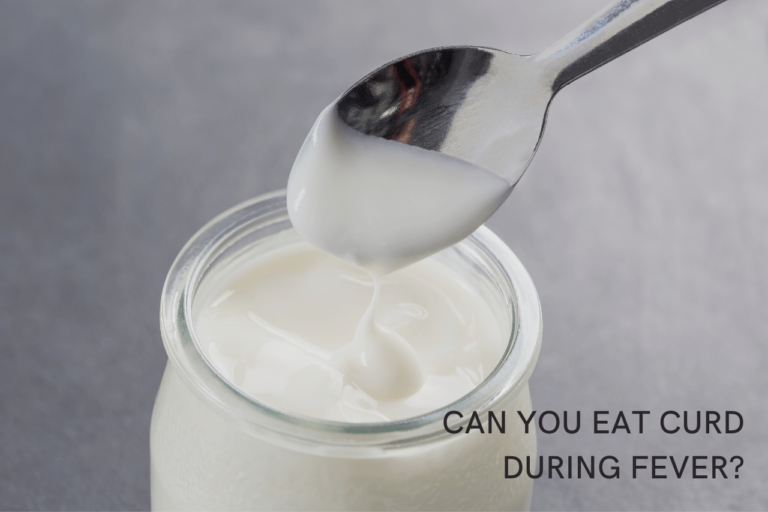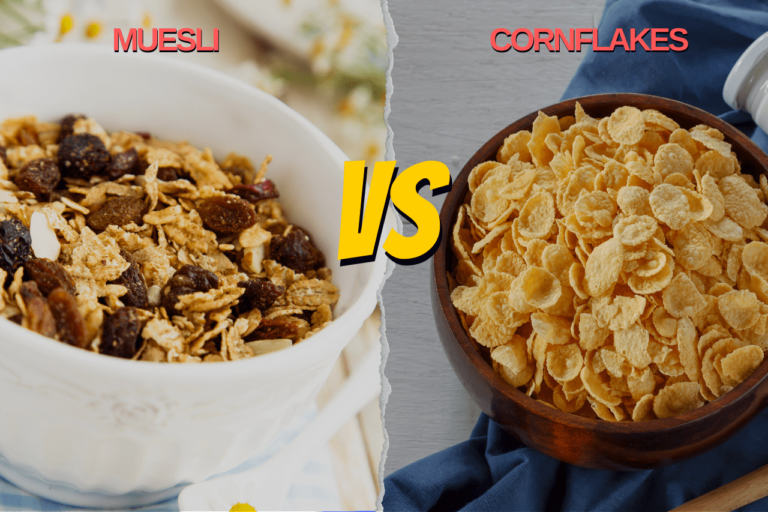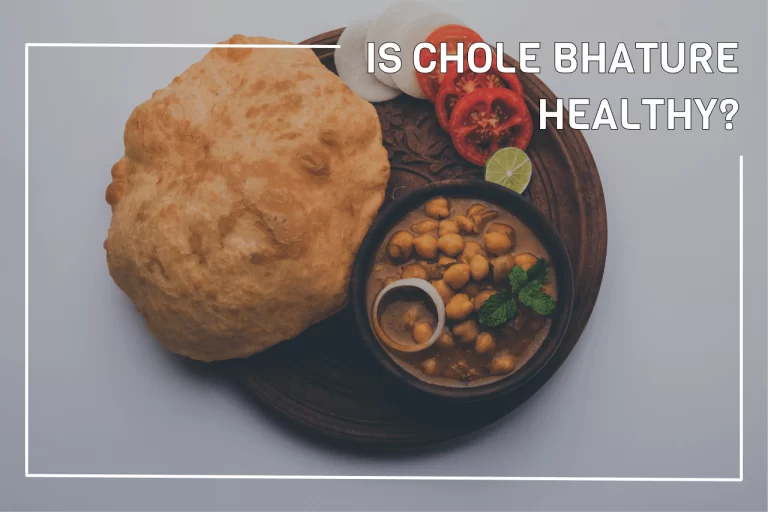For the longest time, breakfast cereals were considered a superfood that can do wonders for your health. While there are many different types of cereals available, one that has been around for more than a century is corn flakes. Corn flakes have been found to offer a number of health benefits.
If you’re looking for a way to add a lot more nutrition to your morning or breakfast, consider a healthy bowl of corn flakes. They’re quick and easy to make, and they’re packed full of vitamins and nutrients.
In this post, I will be sharing the 8 health benefits of corn flakes that will compel you to include it in your breakfast. Also, I will answer some of the most frequently asked questions about corn flakes.
Did you know? There is a popular internet myth that Corn Flakes were created to encourage people to stop masturbating.
How are corn flakes made?
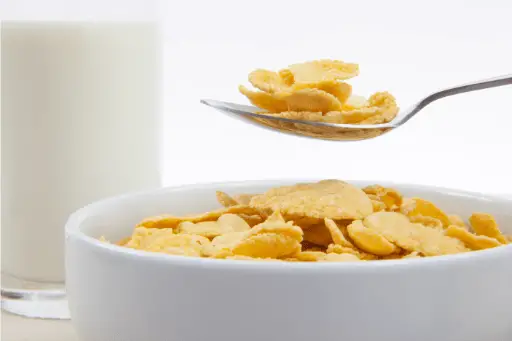
Corn flakes were created by John Harvey Kellog, an American nutritionist, in 1894. They were made primarily for patients at the Kellogg Sanitarium in Michigan as an easy-to-digest, ready-to-eat, and healthy breakfast food. After that, this became a rage in the breakfast menu for many across the world.
John Harvey Kellogg was a firm believer in the importance of a well-balanced diet, and in the late 1800s, he ran a sanitarium in Michigan where he developed corn flakes.
Corn flakes are a breakfast cereal made from corn (maize). They are made by forcing a cornmeal mush through a series of dies to produce flakes.
- The corn seeds are planted around April in soil that is rich in essential nutrients.
- The corn goes through a growth spurt after two months, reaching a height of five feet before flowering.
- Corn becomes ready to be harvested in October and November and transported to a mill, where it is washed, filtered, and rolled before being shipped to a Kellogg’s plant.
- At the plant, corn grits are rolled into flakes. The flakes are then cooked, dried, and toasted, resulting in Kellogg’s Corn Flakes being ready to eat.
Cornflakes are commonly served with sweetened cold or warm milk, but you can also eat them with other beverages like coffee.
The nutritional value of corn flakes
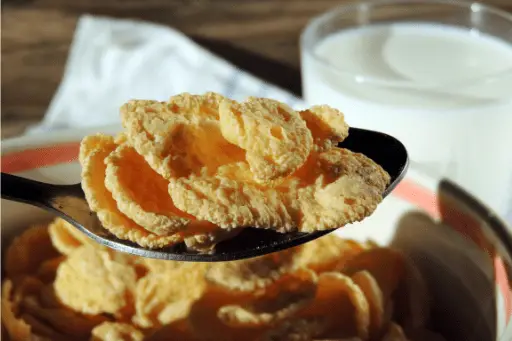
| Nutrients | Quantity(28gm) |
|---|---|
| Protein | 2.1g |
| Calories | 100 |
| Carbohydrates | 24g |
| Fat | 0.1g |
| Vitamin A | 6mg |
| Vitamin C | 135mcg |
| Potassium | 47mg |
| Fiber | 0.9g |
Corn flakes nutritional value hasn’t changed much over the years. In the United States, it is one of the most consumed cereals.
They are high in antioxidants such as Carotene and vitamin C. Also, they are an excellent source of vitamin A, B, protein and Iron, which helps prevent anemia.
Eating 1 cup (28 grams) of corn flakes a day provides you:
- 66% of the daily recommended intake of Iron for men over 18.
- 8% of the daily recommended intake of vitamin C for adults.
- 33% of the daily recommended intake of Folate for adults.
8 Health benefits of corn flakes
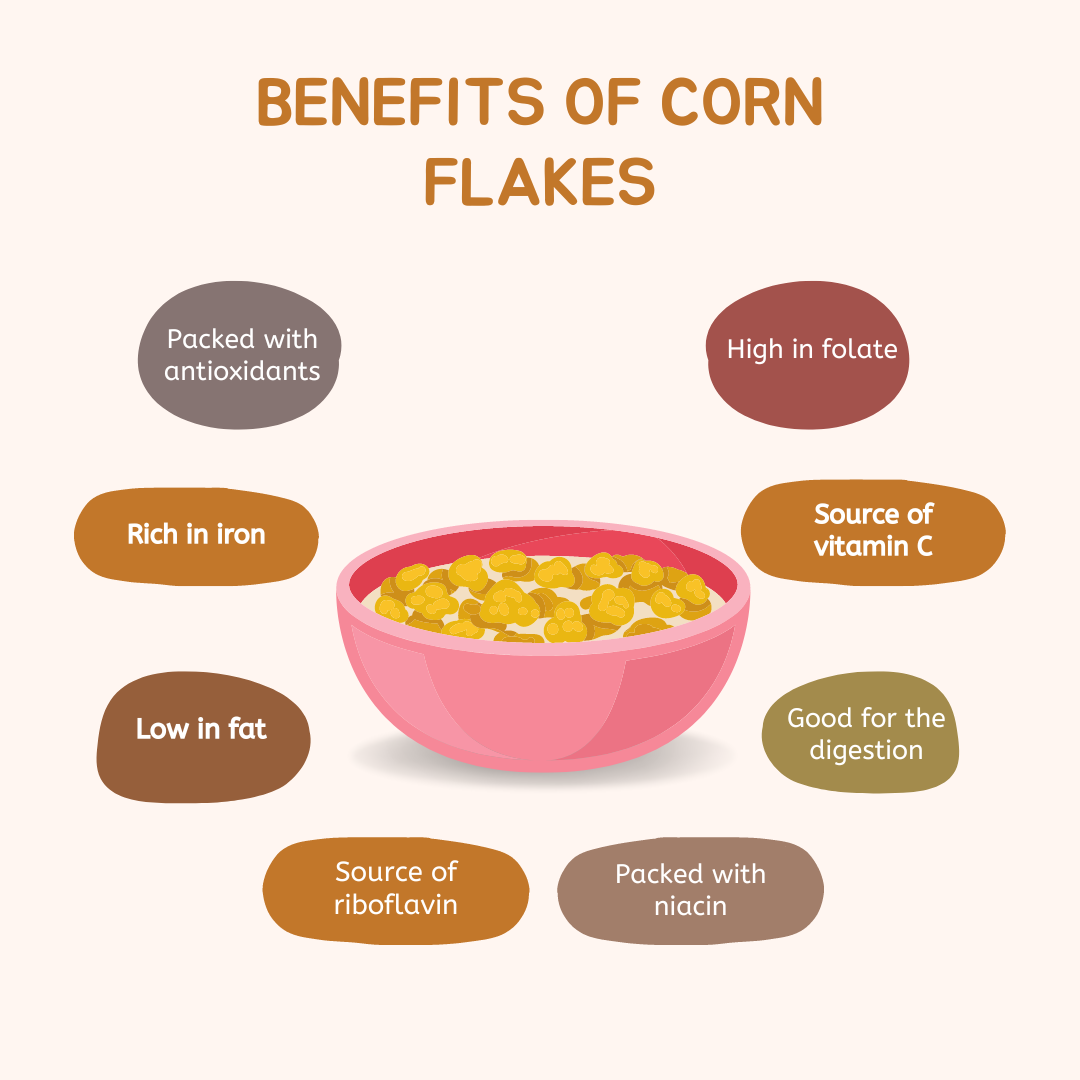
Good source of riboflavin
Corn flakes are good source of riboflavin, also known as vitamin B2. Riboflavin is a water-soluble vitamin that is essential for the growth and development of the body.
It helps your body turn the nutrients in food into energy. It also helps your body release energy from the foods you eat and keep your muscles, nerves, and heart-healthy.
Not only that, but vitamin B2 is a necessary nutrient for people with skin issues. Eating one cup of corn flakes provides 33% of the daily recommended vitamin B2 intake.
Packed with niacin
Corn flakes are packed with the quality nutrients called niacin. Niacin is a member of the B-vitamin group, also called vitamin B3. It is a necessary nutrient for the proper functioning of every organ in your body.
Because of the presence of niacin, including corn flakes in your breakfast menu has several benefits, such as:
- increasing your HDL (good) cholesterol
- reducing your LDL (bad) cholesterol
- reducing your triglyceride levels
- boosting your brain function
Also, according to a study, niacin, whether taken orally or applied as a lotion, helps protect skin cells from sun damage.
Antioxidant-rich source
Antioxidants are nutrients that help protect your body from the harmful effects of free radicals.
Free radicals are harmful molecules that have been linked to the development of a variety of diseases, including cancer and heart disease.
Corn flakes are high in antioxidants such as Carotene and vitamin C, that are thought to help the body combat the harmful effects of free radicals.
Iron rich food
According to a study, Iron deficiency is one of the most common nutrient deficiencies globally, affecting more than 25% of people around the globe.
Iron is a necessary component of hemoglobin, a protein found in red blood cells that aids in the transport of oxygen to the body’s tissues.
If a person does not consume the recommended amount of Iron. In that case, they may experience fatigue, weakness, headaches, chest pain, and even heart failure.
A single cup of corn flakes contains about 66% of the recommended daily allowance of Iron. That means people who include corn flakes in their breakfast will never have to go through the deficiency of Iron.
High folate content
Corn flakes are an excellent source of Folate, which is a crucial nutrient in blood cell formation.
It is significant for pregnant women because the development of the fetus is dependent on it. It’s also required for the production of DNA and proper cell division.
A diet that is lacking in Folate can lead to anemia, fatigue, and depression.
Eating a single cup of corn flakes in breakfast provides your body with 33% of the recommended daily folate allowance.
Good with vitamin C
Vitamin C is one of the essential nutrients for the human body. It is required to form collagen, neurotransmitter production, and iron absorption, among other things.
It also aids in the production of carnitine and acts as an antioxidant that can neutralize free radicals. If you want to boost your vitamin C intake, include corn flakes in your diet.
The human body cannot produce vitamin C on its own. As a result, we must obtain it through diet from the outside. Corn flakes provide about 16% of the recommended daily vitamin C allowance when eaten twice a day.
Low in fat
A high-fat diet can lead to a variety of health problems, including high cholesterol, diabetes, and other heart-related issues.
The good news is that your favorite morning cereal corn flakes, have a low-fat content, which is yet another benefit to eat them.
According to research, People who eat low-fat foods have a lower risk of heart disease, diabetes, and stroke. Also, low-fat diets have been linked to lower cholesterol and the prevention of obesity, both of which are major risk factors for heart disease.
Good for the digestion
Not eating a high-fiber diet can ruin your day.
If you have problems with your stools or have constipation, low energy, or high cholesterol. In that case, it’s possible that you’re not getting enough fiber in your diet.
Fiber is an integral part of a healthy diet because it aids digestion by absorbing water, bulking up stools, and moving food through the digestive tract.
Corn flakes are good source of fiber, with just one cup providing 4% of the recommended daily fiber allowance. Including corn flakes in your diet will help your digestion run smoothly, allowing you to enjoy your day.
Are corn flakes good for weight loss?
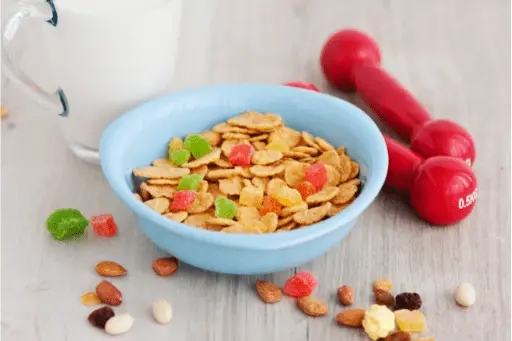
Are cornflakes food for weight loss? After all, this is the question that every corn flakes fan has.
Corn flakes as we know them today are not the same as the first corn flakes discovered. There were no added preservatives or sugar in the first batch of cornflakes.
Nowadays, corn flakes are laced with sugar, which gives them a high glycemic index (GI).
The addition of sugar and corn syrup to the flakes makes it a wrong choice, especially for those trying to lose weight. Because they contain malt, fructose corn syrup, sugar and are high in refined sugars.
According to experts, eating a high-sugar breakfast can cause weight gain and insulin resistance in the body, both of which can lead to diabetes.
Cornflakes may help you lose weight, but only if they are free of added sugar and preservatives.
How to eat corn flakes for weight loss?
If you want to include corn flakes in your weight loss diet, reduce the number of flakes in it and add more fruits and nuts. Avoid adding extra sugar to your cornflakes and try to switch to skimmed milk instead of regular milk.
However, there are many other brands of sugar-free flakes on the market, so pick one of those. Make sure to read the nutritional information on the package before buying corn flakes.
Is it safe to eat corn flakes every day?
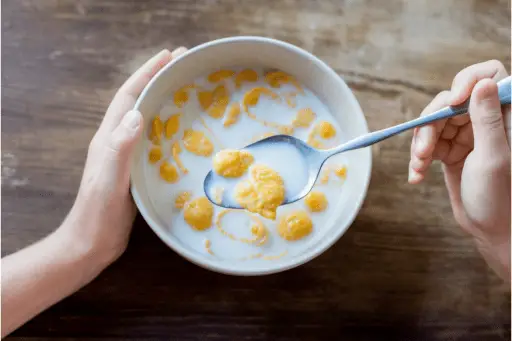
Corn flakes are popular not only in American households but also in households around the world. They are a popular breakfast cereal and a great way to start the day for many people. However, should you eat them regularly?
Although eating corn flakes regularly is safe for many people. However, if you have diabetes or are obese, you should avoid eating corn flakes because they have a high glycemic index.
Corn flakes are processed foods with a glycemic index of 93 and a glycemic load of 23, which is extremely high. Consuming high GI foods can result in a rapid rise in blood glucose, leading to hunger, increased food consumption, and fat storage.
Finally, if you are physically active and of average weight, you can consume corn flakes daily. However, if you have diabetes, you may need to stop.
Also, people who are taking medication should consult with their doctor before eating corn flakes.
Final words
Corn flakes make a quick, tasty, and crunchy breakfast, whether you like them cold or hot. They are healthy if you buy corn flakes that are high in nutrients and low in added sugar.
Don’t forget to check the nutrition label on your corn flakes before you eat them.
I hope you enjoyed this post on the health benefits of corn flakes. With this information, you can determine whether corn flakes are good breakfast option for you or not.

